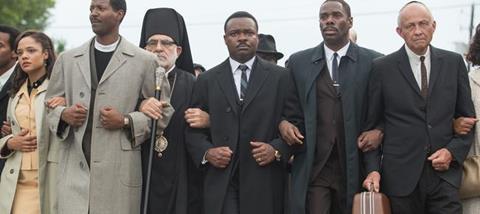
Selma is set in 1965, at a time when black people in Alabama were actively discriminated against by local officials when they attempted to register to vote.
The entitlement to vote was legally theirs, but by a process of systematic intimidation it was virtually impossible for them to obtain this right. Led by President Johnson, the federal government was dragging its feet about bringing in legislation to ensure equality. State governor George Wallace was proactive about preventing it happening.
Into this situation came the Rev Dr Martin Luther King Jr. He travelled to Selma from his home in Atlanta to encourage passive resistance in the certain knowledge that this would lead to violence on the part of the city sheriff’s department. This, in turn, would ensure headlines in New York and Washington.
Dr King, motivated by his belief in the equality of all people before God, organised three protest marches from Selma to walk the 54 miles to the state capital, Montgomery. The story of these marches is told in the film, which is directed by Ava DuVernay with production credits for Oprah Winfrey, who has a supporting acting role, and for Brad Pitt.
Selma tells a story that we need to hear in 2015. We need to be reminded that even in recent history many have been systematically discriminated against. That this was done in the most banal way – such as asking black people to name the 67 high court judges in the state before allowing them to register to vote – makes it all the more shameful.
Yet this is not just about remembering; it is about recognising that the issue is still relevant, albeit in a different form. We have only to look at what has happened in the last couple of years to black males who have been perceived as a threat to law-enforcement officers in certain part of the US. Racism in the UK is less dramatic, but perhaps no less present, and is revealed in the numbers of people from black and ethnic minority groups in certain jobs and professions.
It is interesting to compare Selma and another recent movie featuring religious themes, Exodus. One of the accusations levelled at Exodus is that it used non-white actors in supporting roles and playing slaves and servants. Rupert Murdoch’s suggestion that all the Egyptians he knows are white carries less weight than the claim from director Ridley Scott that using Middle Eastern actors would make fundraising difficult.
In Selma, white characters are played by white actors and black characters are played by black actors. However, four of the main parts – Dr King, his wife Coretta, President Johnson and Governor Wallace – are all played by British actors. That this is barely worthy of comment reminds us, if we need reminding, that this is not an issue of nationality, but one of valuing people of different ethnicity equally.
Selma is scheduled for release in the UK on 6th February
Click here to receive your free copy of Premier Christianity magazine.



























